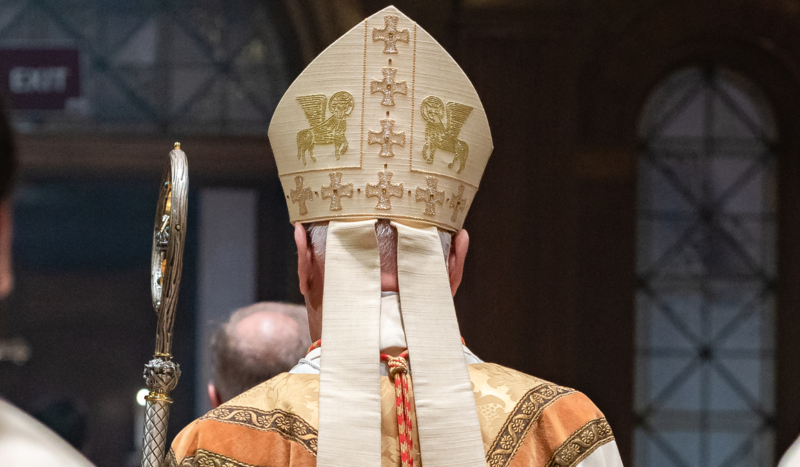
CV NEWS FEED // A new Vatican document issued on June 20 is leading to some controversy as it highlights topics for the upcoming XVI Ordinary General Assembly of the Synod of Bishops that will take place in October 2023 at the Vatican.
Instrumentum Laboris (IL), “working tool”, is the document that will form the basis of discussion for participants of the first session of the General Assembly of the Synod of Bishops. Participants will explore Pope Francis’ vision for a more inclusive, decentralized, and “listening” Church.
Instrumentum Laboris proposes greater laity involvement in decision-making, recommending a “synodal method” which incorporates increased collaboration and consultation between the laity and church authorities, and involves increased openness, prayer and discussion. The method is explained through an infographic of rock towers, which illustrates that to speak “from experience,” to “recognize intuitions,” and to “identify discordances” are key steps in the synodal method.
Step three of the process says, “from what the others have said, each one shares what has resonated most with him or her or what has aroused the most resistance in him or her.”
“It is important that everyone can feel represented by the outcomes of the work,” explains the infographic.
Pope Francis approved IL, which was written by a group of 22 bishops, lay professors, religious, and others earlier this year as a framework for the October meeting.
The document indicates that the first session in October 2023 will focus on designing a more inclusive “synodal style” and selecting participants for the synod.
IL’s emphasis on inclusivity extends to those practicing sexuality that goes against the Church’s teaching.
“What concrete steps are needed to welcome those who feel excluded from the Church because of their status or sexuality (for example, remarried divorcees, people in polygamous marriages, LGBTQ+ people, etc.)?” asks IL. “How can we create spaces where those who feel hurt by the Church and unwelcomed by the community feel recognised, received, free to ask questions and not judged?”
The document has received pushback for what some call an overemphasis on leftist issues.
One article criticizes the document for pandering to the agenda of liberal Catholics because of its references to women’s role in the church, married priests, and outreach to and acceptance of the LGBTQ+ community.
Bishop J. Strickland from the diocese of Tyler, Texas, spoke out in a tweet.
“It is a travesty that these things are even proposed for discussion. I pray that all who truly know Jesus Christ will not be deceived by this path,” Strickland wrote. “The Gospel welcomes all to repentance & sanctity, if there is no repentance the barriers to sanctity remain”.
Diana Montagna, a Rome-based journalist questioned why the Church’s teaching on sexual morality now appears open for discussion.
“Isn’t the only possible answer to these questions that for these people to feel fully accepted, the Church must change her teaching on the inherent immortality of any use of the sexual faculty outside of a lifelong and exclusive monogamous union of one man and one woman,” She asked. “And why would that subject be up for discussion?” asked Montagna.
Jean-Claude Hollerich, S.J., archbishop of Luxembourg and relator general of the synod, said of IL: “We do not speak about the Church’s teaching. That is not our task and not our mission. We just speak to welcome everybody who wants to walk with us. That is something different.”
“We have no agenda”, he said. “There was not a conspiratorial meeting with some people to come up with how we could add some progressive points of the Church. That is a very bad imagination of some people.”
Cardinal Mario Grech, secretary-general of the Synod of Bishops, followed up with a response emphasizing the Church’s particular calling to minister to sinners and the wounded.
“Please also keep in mind that at times we are really judgmental,” said Grech, “We rush to judge people. Let us leave the judgment to the Lord. Our mission is just to help the individual to encounter Jesus, and we can see miracles.”
The synod assembly will vote on the final document at the conclusion of the process in 2024 and give a copy to Pope Francis. The pope will then either adopt the final copy as a papal document or write his own.

